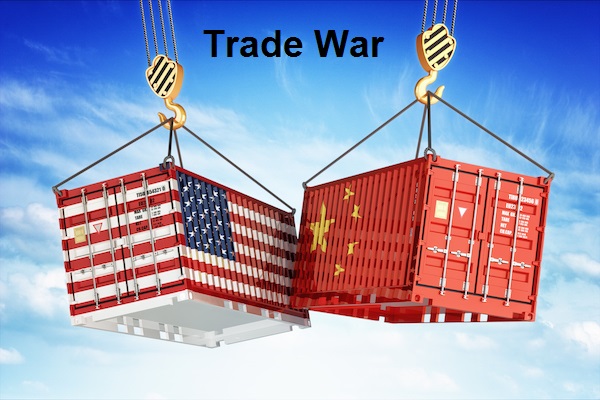While tensions between India and Pakistan have eased with a ceasefire agreement, a trade war is escalating between India and Bangladesh— which was once a part of Pakistan. India on Saturday imposed a ban on the import of several Bangladeshi goods through multiple land customs checkpoints, significantly raising concerns over regional trade flows.
In a notice issued by India’s Directorate General of Foreign Trade, the import of Bangladeshi items such as ready-made garments, fruits, soft drinks, processed foods, cotton, plastic products, and wooden furniture was barred via various dry ports. However, the notification clarified that exports from Bangladesh to Nepal via the Phulbari checkpoint would remain unaffected.
The Phulbari-Banglabandha route serves as the primary corridor for Nepal-Bangladesh trade. According to Nepal’s Department of Customs, Nepal exported goods worth Rs 389.3 million to Bangladesh and imported goods worth Rs 3.43 billion from Bangladesh by the third quarter of the current fiscal year.
Although India has assured that trade between Nepal and Bangladesh will not be disrupted, international trade expert and former joint secretary at Nepal’s Ministry of Industry, Commerce and Supplies, Ravishankar Sainju, warned of possible complications. “India may now tighten the monitoring of goods exported from Nepal and imported from Bangladesh,” Sainju said. “Bangladesh, too, could increase scrutiny to prevent Indian goods from being rerouted through Nepal, thereby increasing trade costs between Nepal and India.”
The ban, based on the principle of reciprocal treatment, is seen as retaliation for Bangladesh’s recent restrictions on Indian goods. Earlier in April, Bangladesh banned imports of several Indian items, including yarn, powdered milk, tobacco, potatoes, fish, ceramic ware, stainless steel, and vehicle parts. Bangladesh also imposed similar bans on yarn and potatoes from Nepal and Bhutan, although Nepal’s exports of those items are minimal. According to Sainju, these symbolic restrictions were likely aimed at avoiding accusations that Bangladesh was singling out India.
India’s move could affect approximately USD 770 million worth of Bangladeshi exports, or about 42 percent of the country’s total exports to India, according to the Global Trade Research Initiative (GTRI), as reported by The Economic Times . The trade restriction is also seen as a response to Bangladesh’s growing economic engagement with China.
The ban is applicable at all Indian land customs points in Assam, Meghalaya, Tripura, Mizoram, Changrabandha, and Phulbari, but not at Kolkata seaport, where imports are still permitted.
This growing trade conflict is unfolding against the backdrop of India’s push for regional economic integration through initiatives such as BIMSTEC (Bay of Bengal Initiative for Multi-Sectoral Technical and Economic Cooperation) and BBIN (Bangladesh, Bhutan, India, Nepal). Under BBIN, a motor vehicle agreement has been signed, and studies are ongoing to enhance railway connectivity. As part of energy cooperation, Nepal exported electricity to Bangladesh via India for the first time last year.
Sainju warned that worsening ties could jeopardize such regional initiatives. “The deteriorating relationship between India and Bangladesh is undermining regional economic integration efforts,” he said.
The downturn in bilateral relations follows India’s decision to grant asylum to former Bangladeshi Prime Minister Sheikh Hasina in August 2024, amid widespread student-led protests in Dhaka. India’s refusal to extradite Hasina, a leader widely regarded as pro-India, has strained political relations—now visibly spilling over into the economic sphere.











